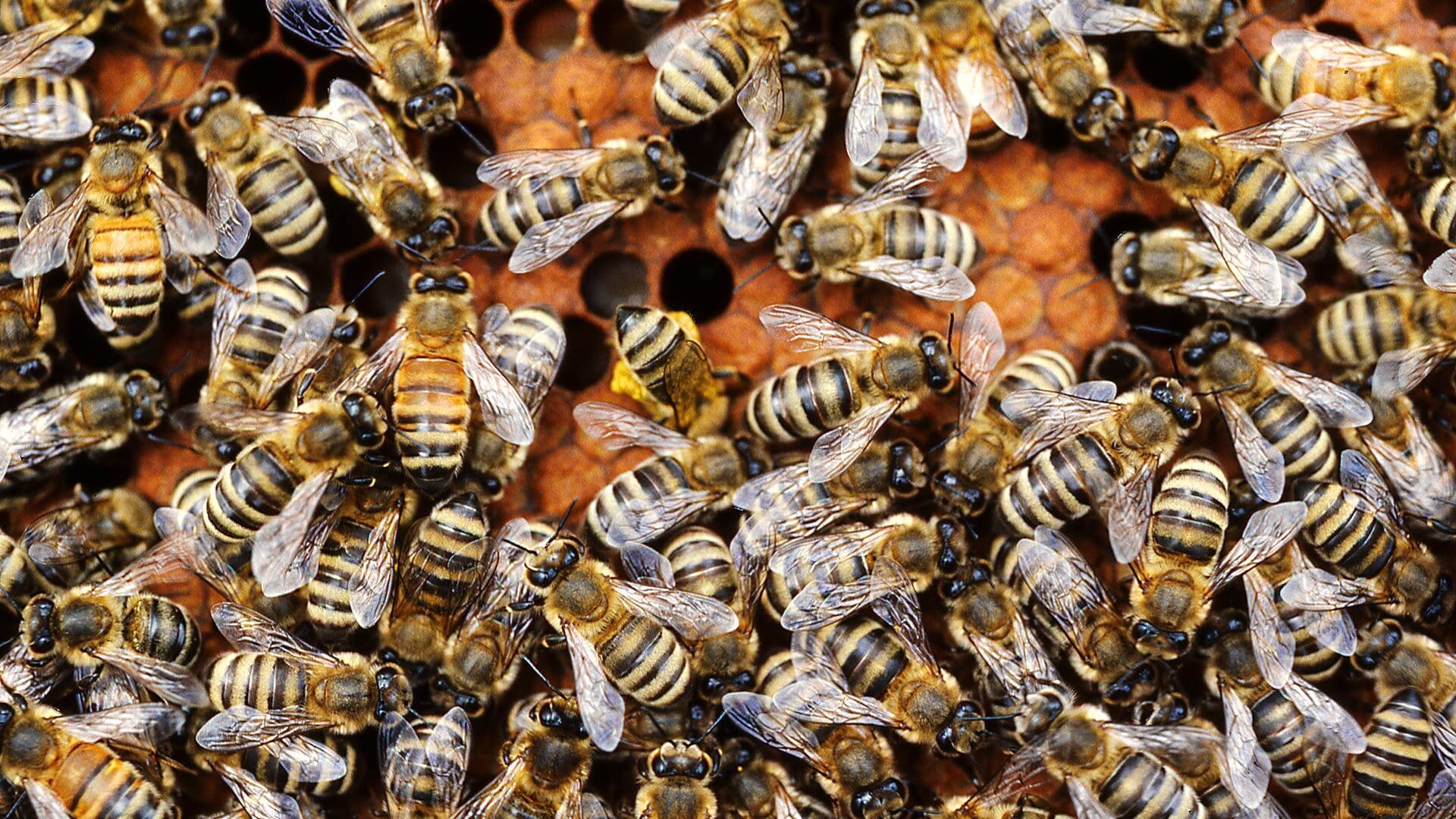Bee Wary: UMD-backed Study Finds Colony Losses Exceed 40%
Researchers Call for Greater Understanding of Pollinators’ Problems

Photo by John T. Consoli
Beekeepers across the U.S. lost 40.7% of their honey bee colonies from April 2018 to April 2019—two points higher than the annual average of 38.7—according to preliminary results from an annual nationwide survey conducted by the UMD-led nonprofit Bee Informed Partnership.
The news continues to sting for bees—not to mention everyone who depends on the food crops they pollinate—according to preliminary results released today from an annual nationwide survey conducted by the University of Maryland-led nonprofit Bee Informed Partnership.
Beekeepers across the United States lost 40.7% of their honey bee colonies from April 2018 to April 2019—two points higher than the annual average of 38.7. Winter losses of 37.7% were the highest reported since the survey began 13 years ago and 8.9 percentage points higher than the survey average.
Honey bees pollinate $15 billion worth of food crops in the United States each year, so their health is critical to food production and supply.
“These results are very concerning, as high winter losses hit an industry already suffering from a decade of high winter losses,” said Dennis vanEngelsdorp, associate professor of entomology at UMD and president of the Bee Informed Partnership.
Since beekeepers began noticing dramatic declines in their colonies, state and federal agricultural agencies, university researchers and the beekeeping industry have been working to understand the causes and develop best management practices to reduce losses. The annual colony loss survey, which has been conducted since 2006, has been an integral part of that effort.
The survey asks commercial and backyard beekeeping operations to track the survival rates of their honey bee colonies. Nearly 4,700 beekeepers managing 319,787 colonies from all 50 states and the District of Columbia responded to this year’s survey, representing about 12% of the nation’s estimated 2.69 million managed colonies.
“Just looking at the overall picture and the 10-year trends, it’s disconcerting that we’re still seeing elevated losses after over a decade of survey and quite intense work to try to understand and reduce colony loss,” said Geoffrey Williams, assistant professor of entomology at Auburn University and co-author of the survey. “We don’t seem to be making particularly great progress to reduce overall losses.”
The Bee Informed Partnership team said multiple factors are likely responsible for persistently high annual loss rates and this year’s jump in winter losses. They say a multipronged approach to research, extension and best management practices is needed to combat the problem.
The No. 1 concern among beekeepers is varroa mites, lethal parasites that can readily spread from colony to colony. These mites have been decimating colonies for years, and the University of Maryland and other institutions are seeking ways to combat them.
But products to control the mites seems to be losing effectiveness, vanEngelsdorp said.
“Last year, many beekeepers reported poor treatment efficacy, and limited field tests showed that products that once removed 90% of mites or more are now removing far fewer,” he said.
Karen Rennich, executive director of the Bee Informed Partnership and senior faculty specialist at the University of Maryland, said changing land use and environmental factors, as well as increases in extreme weather, may play significant roles in colony losses.
More research is needed to understand what role climate change and variable weather patterns play in honey bee colony losses, researchers said.
For more information, visit the Bee Informed website.